第67章 VISIT TO HONOLULU(1)
Right glad were we all when, after much fumbling and box-hauling about, we once more felt the long, familiar roll of the Pacific swell, and saw the dim fastnesses of the smoky islands fading into the lowering gloom astern.Most deep-water sailors are familiar, by report if not by actual contact, with the beauties of the Pacific islands, and I had often longed to visit them to see for myself whether the half that had been told me was true.
Of course, to a great number of seafaring men, the loveliness of those regions counts for nothing, their desirability being founded upon the frequent opportunities of unlimited indulgence in debauchery.To such men, a "missionary" island is a howling wilderness, and the missionaries themselves the subjects of the vilest abuse as well as the most boundless lying.
No one who has travelled with his eyes open would assert that all missionaries were wise, prudent, or even godly men; while it is a great deal to be regretted that so much is made of hardships which in a large proportion of cases do not exist, the men who are supposed to be enduring them being immensely better off and more comfortable than they would ever have been at home.
Undoubtedly the pioneers of missionary enterprise had, almost without exception, to face dangers and miseries past telling, but that is the portion of pioneers in general.In these days, however, the missionary's lot in Polynesia is not often a hard one, and in many cases it is infinitely to be preferred to a life among the very poor of our great cities.
But when all has been said that can be said against the missionaries, the solid bastion of fact remains that, in consequence of their labours, the whole vile character of the populations of the Pacific has been changed, and where wickedness runs riot to-day, it is due largely to the hindrances placed in the way of the noble efforts of the missionaries by the unmitigated scoundrels who vilify them.The task of spreading Christianity would not, after all, be so difficult were it not for the efforts of those apostles of the devil to keep the islands as they would like them to be--places where lust runs riot day and night, murder may be done with impunity, slavery flourishes, and all evil may be indulged in free from law, order, or restraint.
It speaks volumes for the inherent might of the Gospel that, in spite of the object-lessons continually provided for the natives by white men of the negation of all good, that it has stricken its roots so deeply into the soil of the Pacific islands.Just as the best proof of the reality of the Gospel here in England is that it survives the incessant assaults upon it from within by its professors, by those who are paid, and highly paid, to propagate it, by the side of whose deadly doings the efforts of so-called infidels are but as the battery of a summer breeze; so in Polynesia, were not the principles of Christianity vital with an immortal and divine life, missionary efforts might long ago have ceased in utter despair at the fruitlessness of the field.
We were enjoying a most uneventful passage, free from any serious changes either of wind or weather which quiet time was utilised to the utmost in making many much-needed additions to the running-gear, repairing rigging, etc.Any work involving the use of new material had been put off from time to time during the previous part of the voyage till the ship aloft was really in a dangerous condition.This was due entirely to the peculiar parsimony of our late skipper, who could scarcely bring himself to broach a coil of rope, except for whaling purposes.The same false economy had prevailed with regard to paint and varnish, so that the vessel, while spotlessly clean, presented a worn-out weather-beaten appearance.Now, while the condition of life on board was totally different to what it had been, as regards comfort and peace, discipline and order were maintained at the same high level as always, though by a different method--in fact, I believe that a great deal more work was actually done, certainly much more that was useful and productive; for Captain Count hated, as much as any foremast hand among us, the constant, remorseless grind of iron-work polishing, paint-work scrubbing, and holystoning, all of which, though necessary in a certain degree, when kept up continually for the sole purpose of making work--a sort of elaborated tread-mill, in fact--becomes the refinement of cruelty to underfed, unpaid, and hopeless men.
So, while the CACHALOT could have fearlessly challenged comparison with any ship afloat for cleanliness and neatness of appearance, the hands no longer felt that they were continually being "worked up" or "hazed" for the sole, diabolical satisfaction of keeping them "at it." Of course, the incidence of the work was divided, since so many of the crew were quite unable to do any sailorizing, as we term work in sails and rigging.Upon them, then, fell all the common labour, which can be done by any unskilled man or woman afloat or ashore.
Of this work a sailor's duties are largely made up, but when good people ashore wonder "whatever sailors do with their time," it would be useful for them to remember that a ship is a huge and complicated machine, needing constant repairs, which can only be efficiently performed by skilled workmen.An "A.B." or able seaman's duties are legally supposed to be defined by the three expressions, "hand, reef, and steer." If he can do those three things, which mean furling or making fast sails, reefing them, and steering the ship, his wages cannot be reduced for incompetency.Yet these things are the A B C of seamanship only.